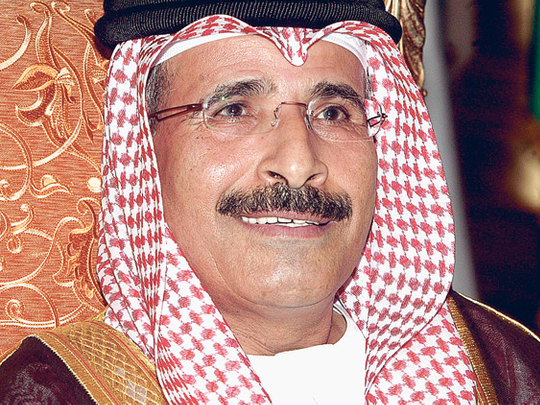
Abu Dhabi: The 50th anniversary of the Organisation of Petroleum Exporting Countries (Opec) provides an excellent opportunity to reflect on the organisation's achievements over the past half century and the UAE's participation as an effective member state, a senior UAE energy official said yesterday.
"We should start by recalling that membership of Opec was one of the first major decisions taken by Shaikh Zayed Bin Sultan Al Nahyan, the founding father of the UAE. He decided that Abu Dhabi should join Opec in 1967, barely a year after becoming the ruler. When the UAE was created in 1971, the new nation automatically joined the organisation. The decision by Shaikh Zayed reaffirmed the country's sovereign rights over its hydrocarbon resources, at a time when almost all oil production was in the hands of a small group of international oil companies, known as the seven sisters, according to Ali Obaid Al Yabhouni, UAE Governor for Opec.
In a statement on ‘Reflections on Opec's 50th Anniversary', Al Yabhouni said, "These companies controlled the quantity of oil extracted, managed how much was sold and to whom, and determined the price. National governments were paid small royalties, in contrast to the large profits made by the multinationals.
"Membership of Opec helped break the power of the oil multinationals and was soon followed by the creation of the Abu Dhabi National Company (Adnoc) in 1971. Today, Adnoc and its group of companies is a leading oil and gas company in its own right, as big as many of the modern international oil companies that emerged from the ‘seven sisters'. It now works as an equal partner with these companies on terms that are equitable for both sides.
Over the past 50 years, Opec has seen moments of great drama, such as the oil crisis in the early 1970s, the oil ministers being taken hostage by terrorists in 1975, the oil price collapse in the mid-80s, the price spike of 2008 and two Gulf wars. However, these events constitute as minor sidetracks compared to the organisation's long term achievements.
Secure supply
"These include the secure and steady supply of oil, the sustainable economic development of its members, the response by member states to the challenges posed by global warming and the initiation of an active dialogue between consumers and producers. All these achievements show Opec as a mature organisation, working not only for the benefits of its members, but for the wider good of consumers and the planet," he said.
Over the past half century, he maintained, Opec has proved itself to be a cohesive organisation. Two Gulf wars, that pitted member states against each other, did not weaken the resolve or the effectiveness of the organisation.
History has shown that the UAE has not been a passive member of Opec. Of the 156 Opec ministerial conferences held to date, 25 have been held under the presidency of the UAE and two have been hosted in Abu Dhabi. Furthermore, the UAE has provided two secretaries-general over the past half century.
"Accusations of Opec being a cartel do not hold water, as cartels are organisations or groups of companies that meet to fix prices. This is not the case with Opec, which abandoned any attempt to fix prices several decades ago.
"Instead, ministers focus on coordinating production to ensure that the right amount of oil reaches consumers. Equally unfounded is the myth that Opec intentionally reduces production in order to raise prices. But on the contrary, members step in to raise production in response to global emergencies or geo-political events, such as during the two Gulf wars and the strike that paralysed oil production in Venezuela in late 2002," he stressed.
Unforseen events
"Opec members' ability to respond to unforeseen events and, whenever necessary, to increase production depends on massive investments in spare cap-acity — oilfields and oil facilities kept unused in case of an emergency. This is a unique and free service that Opec members extend to the world community.
"It is also a myth that Opec members are necessarily rich nations. Many members are developing countries with an urgent need for oil revenue for their social and economic development.
"Yet individual member states such as the UAE rank amongst the world's most generous foreign aid donors. All members contribute to the Opec Fund for International Development (OFID), one of the world's most generous multilateral aid agencies. Since its creation in 1976, OFID has committed over $12 billion to help alleviate poverty and promote development in 127 countries. For example, it recently donated $500,000 to victims of flooding in Pakistan."












